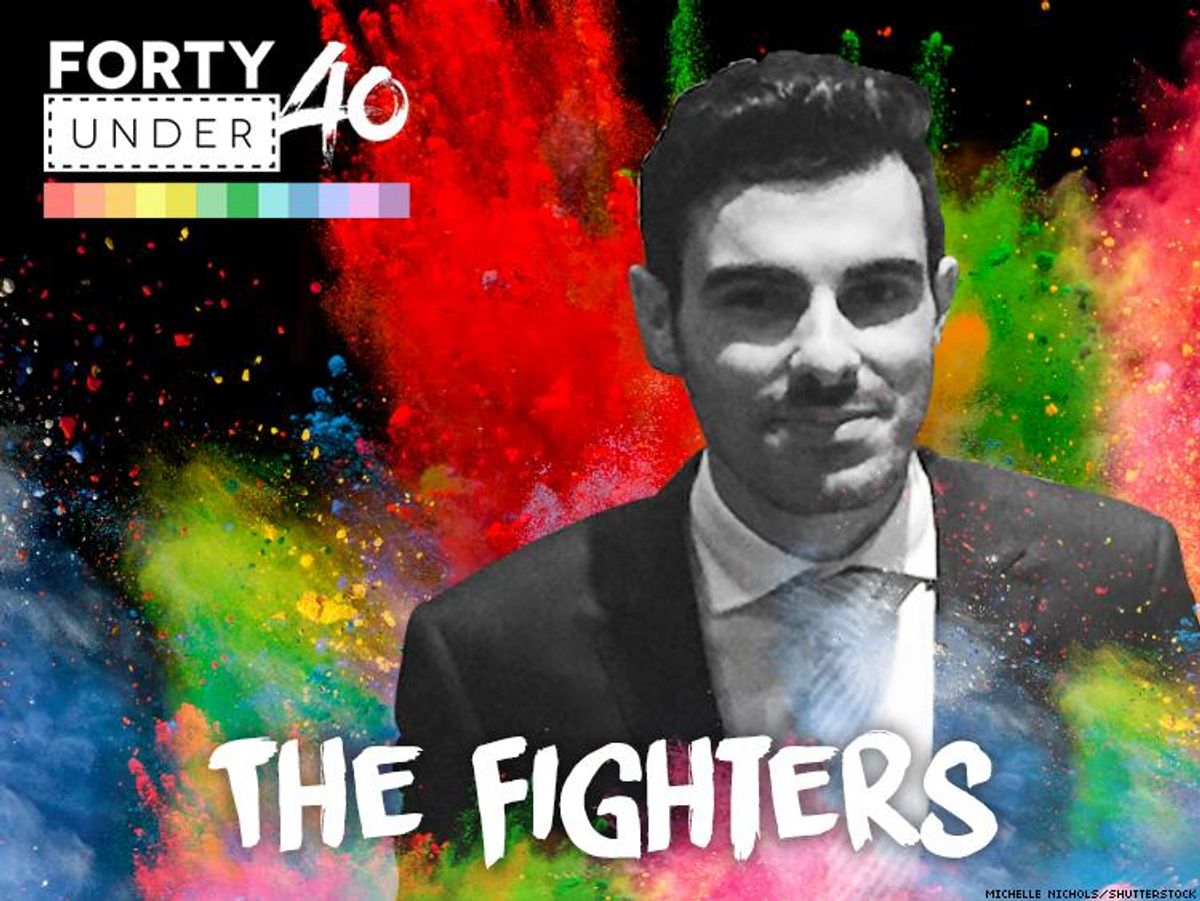For those presidential candidates and others who claim that admitting refugees from war-torn Syria to the United States will result in an influx of terrorists, Subhi Nahas has a message.
"The hardest way for terrorists to come is through the refugee process," says Nahas, a gay man who fled Syria three years ago and made it to the United States this year, when he made history by addressing the United Nations Security Council's first-ever hearing on LGBT refugees.
The process, he explains, is an extremely long one, due to extensive background checks and other vetting of people who apply for refugee status. "I was one of the lucky ones," Nahas says, as for him it took about eight months to receive approval. The time between application and approval is more commonly one to two years.
Nahas attributes the suspicion directed at refugees to a lack of knowledge. That's something he's trying to change through his work at the Organization for Refuge, Asylum, and Migration, which advocates for LGBT and intersex refugees fleeing persecution due to their sexual orientation or gender identity.
And while he most often speaks specifically about the situation of sexual minorities, he stresses that the refugee cause is one that crosses identity lines. Those seeking refuge may have been persecuted for various reasons -- because they're women, because they're members of religious or ethnic minorities, or because they're gay or transgender -- but ultimately, they are all in the fight together. "If we think we are one, we support each other," Nahas says by phone from the ORAM office in San Francisco.
Nahas, 28, says the situation of LGBT people in Syria has never been good, but it has deteriorated due to the civil conflict of the past few years. Under the government of President Bashar al-Assad, so-called sex acts against nature were criminalized and punishable by up to three years in prison. In addition, Nahas says, there was a general climate of homophobia, with men thought to be gay often detained and threatened by police -- he was detained himself at one point, although released without being harmed.
In 2011, pro-democracy forces began protesting Assad's dictatorial rule, but the situation quickly devolved into civil war, with a variety of sectarian and radical groups joining in. A branch of al Qaeda eventually took over Nahas's hometown, Idlib, in northern Syria. The group imposed Sharia law, which is deeply opposed to homosexuality, and pledged to rid the city of "sodomites."
Although the al Qaeda branch wasn't as bold as the terrorist group known as Islamic State of Iraq and Syria, which now controls parts of both nations, its partisans began arresting, torturing, and killing those believed to be LGBT. Nahas knew his city was no longer safe for him, so he left, fleeing first to Lebanon, then to Turkey, where he obtained a job with the nonprofit organization Save the Children.
He was initially working near Turkey's border with Syria, and the area became less and less safe as ISIS's influence in Syria spread. He even received death threats from a former friend who had joined ISIS. He eventually moved to Istanbul, where he connected with the United Nations High Commissioner for Refugees and applied for asylum in the United States. He arrived here June 4, with a job set up at ORAM, where he handles information technology as well as doing advocacy work. And he gave his historic testimony to the U.N. in August.
There, he told his story to the members of the Security Council and noted that the ISIS-controlled portions of Syria are "increasingly perilous for all minorities, but especially for those whose differences from the rest are reviled -- sexual and gender minorities, religious minorities, and those who follow the call to voice their conscience. ... I urge you, representatives of governments of conscience to heed this plea and open your doors to those who'll survive this greatest human disaster of modern times. I implore you to do everything in your power to give sexual and gender minorities and other vulnerable refugees safe haven where they can again know security."
Testifying was a transformative experience for Nahas, he says. "As a newcomer to the country, you feel like you're paralyzed -- there's nothing you can do," he recalls. After giving testimony, that changed. "You feel like you're liberated, and you have to do more. ... I felt very empowered. I felt invigorated." Giving testimony and coming to a country where he can freely be gay was also spiritually invigorating, notes Nahas, who was brought up in a nonreligious household.
Nahas, who was named to the 2015 Out 100 list of LGBT achievers by our sibling publication Out, says he continues to be invigorated by being in the U.S. and doing his advocacy work. "I love it," he says. "It's a place where I can be myself and do the work I am passionate about" -- helping others find the freedom he has.


















































































Fans thirsting over Chris Colfer's sexy new muscles for Coachella